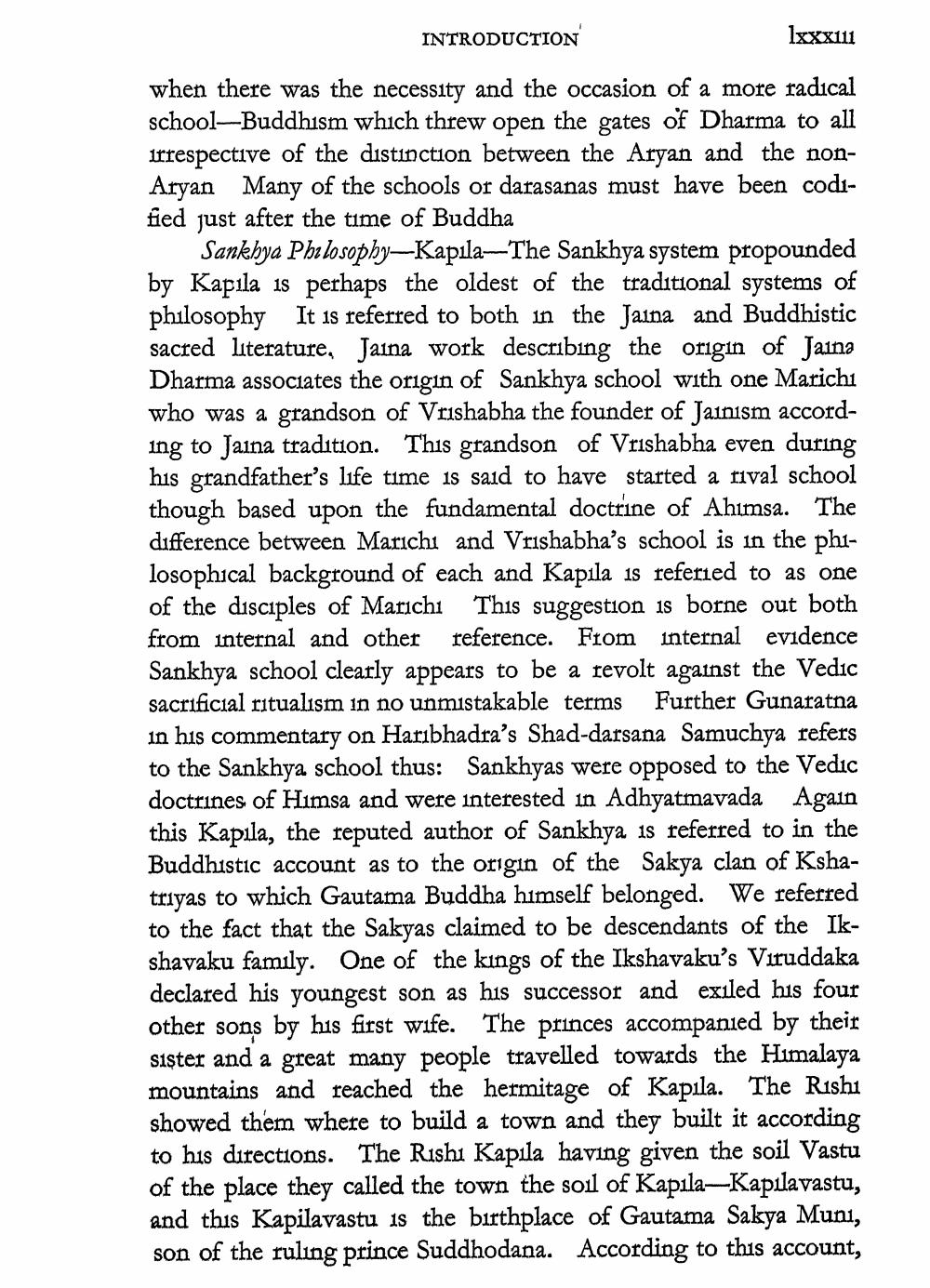________________
INTRODUCTION
lxxx111
when there was the necessity and the occasion of a more radical school-Buddhism which threw open the gates of Dharma to all irrespective of the distinction between the Aryan and the nonAryan Many of the schools or darasanas must have been codified just after the time of Buddha
Sankhya Philosophy-Kapıla—The Sankhya system propounded by Kapila is perhaps the oldest of the traditional systems of philosophy It is referred to both in the Jaina and Buddhistic sacred literature, Jaina work describing the origin of Jaina Dharma associates the origin of Sankhya school with one Marichi who was a grandson of Vrishabha the founder of Jainism according to Jaina tradition. This grandson of Vrishabha even during his grandfather's life time is said to have started a rival school though based upon the fundamental doctrine of Ahimsa. The difference between Marichi and Vrishabha's school is in the philosophical background of each and Kapila is referied to as one of the disciples of Marichi This suggestion is borne out both from internal and other reference. From internal evidence Sankhya school clearly appears to be a revolt against the Vedic sacrificial ritualism in no unmistakable terms Further Gunaratna in his commentary on Haribhadra's Shad-darsana Samuchya refers to the Sankhya school thus: Sankhyas were opposed to the Vedic doctrines of Himsa and were interested in Adhyatmavada Again this Kapila, the reputed author of Sankhya is referred to in the Buddhistic account as to the origin of the Sakya clan of Kshatriyas to which Gautama Buddha himself belonged. We referred to the fact that the Sakyas claimed to be descendants of the Ikshavaku famıly. One of the kings of the Ikshavaku's Viruddaka declared his youngest son as his successor and exiled his four other sons by his first wife. The princes accompanied by their sister and a great many people travelled towards the Himalaya mountains and reached the hermitage of Kapila. The Rishi showed them where to build a town and they built it according to his directions. The Rishi Kapıla having given the soil Vastu of the place they called the town the soul of Kapıla—Kapulavastu, and this Kapilavastu is the birthplace of Gautama Sakya Muni, son of the ruling prince Suddhodana. According to this account,




